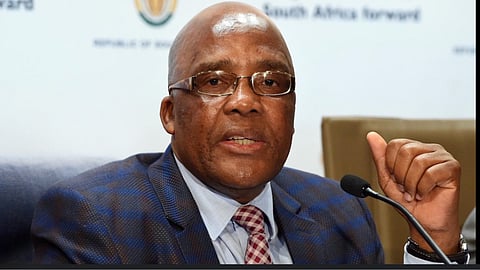RW Johnson: Cyril’s dilemma on Motsoaledi, ANC’s ineffective, financially ignorant health minister
Aaron Motsoaledi's tenure as Minister of Health left a mixed legacy. While praised for reversing harmful Aids policies and expanding ARV access with international support, his leadership faced significant criticism. His administration was plagued by management failures and an inability to implement the ambitious 10-point plan he initially proposed. His efforts to push through the controversial National Health Insurance (NHI) policy have also faced widespread opposition, raising concerns about its constitutionality and feasibility.
Sign up for your early morning brew of the BizNews Insider to keep you up to speed with the content that matters. The newsletter will land in your inbox at 5:30am weekdays. Register here.
By R.W. Johnson
___STEADY_PAYWALL___

